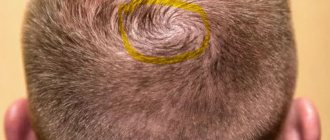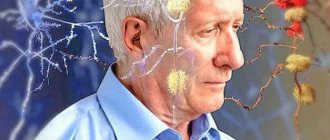Definition of Anorexia
Anorexia syndrome is a serious mental disorder that poses a real threat to the patient’s life. A person is unable to adequately evaluate his body, deliberately refuses to eat, and is also manically obsessed with losing weight. Most often, women and adolescents are susceptible to the disease; less often, anorexia is diagnosed in men.
The fundamental feature is that a man or young man suffering from anorexic disorder does not understand the severity of his condition and considers himself absolutely healthy and flatly refuses the help of loved ones, and even more so, going to the doctors. As a result of the pathological process, which is manifested by partial or complete refusal to eat, weight rapidly falls, in some cases reaching critical levels (about 50% weight loss).
The result of such a long fast is guaranteed to be a deterioration in general well-being, weakness, irritability, lack of strength, deterioration of the condition of the skin, teeth, loss of libido, and sooner or later other, no less dangerous diseases are added to eating disorders.
Causes
There are several factors for the development of anorexia in men:
- ridicule in childhood due to being overweight or overweight;
- working conditions;
- predisposition to mental illness at the genetic level;
- excessive physical activity;
- worship of thinness in society.
Let's take a closer look at each of them.
Psychological factor
Caused by the following reasons:
- Fear from childhood - if a man in childhood heard a lot of ridicule about his weight, then in adulthood this leads to a deliberate and complete refusal to eat. This condition is caused by psychological trauma and fear of new bullying.
- Depressive state - refusal to eat is caused by severe depression. Remember yourself, when you are nervous or in a bad mood, most often you not only don’t want to eat anything, but also don’t move. In the case of depression, the body is not able to accept food, and an aversion to it arises. A complication of this disorder is rapid weight loss.
Youth protest
Most often, the factor in the development of an eating disorder in adolescents is a protest against something: the strong guardianship of parents, their figure, the established framework in the company of friends. At the age of 10-15 years, boys compare themselves with celebrities, watch various videos, after which they begin to express dissatisfaction with adults and feel hatred for their body.
Teenagers do not understand that refusal to eat, like intentionally induced vomiting, can lead to irreparable consequences in the future. Usually these complications affect the psyche.
Physical activity
Often, at an appointment with a psychiatrist or psychotherapist, you can meet a person who is actively involved in sports and complains about eating problems. It would seem that there could be a connection between an active lifestyle and an eating disorder. Quite big actually.
People who lead an active lifestyle and often go to the gym often eat so many foods that they do not cover their energy costs. Because of this, thinness occurs with short or high stature, in some cases leading to anorexia. In addition, excessive physical activity and workaholism are the first step towards a mental disorder.
Labor activity
Some types of work can cause nervous exhaustion and, as a result, lead to refusal of food or a significant reduction in its portions. The man’s psyche tries to protect itself from problems at work with the help of external and internal changes: the patient loses the desire to communicate with anyone, and symptoms of a manic state arise. This is how anorexia nervosa manifests itself.
Popularity
Look at celebrities, few of them have problems with excess weight. If we add to this that photo and video cameras, on average, visually add from 4 to 10 kg of body weight, then imagine what the real weight of famous men is.
Popularity is one of the factors in the development of anorexia
To look thinner, many celebrities go on diets or deliberately starve. This leads to changes in the psyche and deterioration of well-being.
The manic desire to lose weight sometimes leads to weight reduction to critical levels. If we add to this the patient’s inadequate belief that even with such body weight, his physical deficiencies due to excess weight are visible, then this can only mean one thing - it’s time to visit a psychiatrist.
Vegetarianism and diets
Many people mistakenly believe that plant foods can completely cover a person’s daily need for all nutrients. Traditional medicine has its own opinion on this matter - vegetarianism, like excessive enthusiasm for diets, is in some cases quite dangerous.
Vegetarianism increases the likelihood of developing anorexia as a result of a lack of fat tissue reserves. In the case of diets, eating disorders or changes in the functioning of the body may occur, leading to significant loss of body weight.
Differences between male and female anorexia
It is generally accepted that only women are overly critical of their appearance, closely monitor their weight and tirelessly measure volumes. While men don't care what they look like. However, as a recent sociological survey among the male population aged 18 to 65 shows, only 40% of respondents were satisfied with their appearance, while 60% wanted to become slimmer and get rid of excess weight. This state of affairs suggests that the problem of anorexia may be much more dangerous and global.
Despite the similarity of symptoms and causes of anorexia, there are some differences between female and male anorexia:
- Course of the disease. While the development of the disease in women can be suspected even at the initial stage due to pronounced external signs, weight loss in men is not so rapid. Anorexia in men often occurs along with bigorexia, an obsessive desire to have a lean and pumped-up body, which can be perceived by people as being in good physical shape rather than a symptom of a disease. As practice shows, it is possible to make a correct diagnosis only at an advanced stage.
- Features of treatment. Due to the fact that the disease is detected earlier in women, the chances of a favorable outcome are much higher. Men manage to hide their condition for a long time, reaching a critical stage, which significantly complicates the course of treatment.
Teenage anorexia
During puberty, girls and boys pay special attention to their appearance. Compared to the advertising figures on TV and the Internet, their bodies are far from perfect. Therefore, they are ready to make any sacrifice to change their body for the better.
Young men begin to play sports intensively, switch to a different diet, and lose several kilograms. But, trying to reduce weight, teenagers can get carried away and not notice how losing weight for health and aesthetic purposes gradually turns into pathology. Restrictions on food lead to a decrease in appetite, and then to its complete absence. Exhausting physical training for anorexia does not contribute to the growth of muscle mass, but harms the functioning of the heart.
Boys' skeletal structure and rapid growth during adolescence hide the problem of being underweight, so anorexia may go unnoticed.
Learn more about teenage anorexia
Causes
Speaking about the reasons for the development of anorexia syndrome in men, it is worth highlighting four types of the disease, which are caused by a cause-and-effect relationship:
- anorexia that occurs against the background of an underlying serious mental disorder - depression, paranoid state or schizophrenia. This variant of male anorexia is most common;
- a disorder that has developed as a result of a serious illness of internal organs - that is, the body concentrates its forces on fighting the underlying disease, while digestion of food takes a back seat - in this case, the disorder is not mental;
- anorexia nervosa - male representatives deliberately lose weight, limit themselves in nutrition or refuse food, and most often the most important complex is a hanging belly;
- the disease is a consequence of taking drugs that destroy mental health - antidepressants, drugs and even alcohol.
Eating disorders can be triggered by childhood fears, teenage crises, increased physical activity, increased stress at work, the desire to be popular and in demand due to a certain appearance, a career in professional sports, hobbies for a healthy lifestyle - diets, proper nutrition, vegetarianism, raw food diet and etc.
The connection between bulimia and anorexia
There are several common eating disorders, including anorexia and bulimia. Patients often confuse the signs of these diseases. First of all, it is worth noting that bulimia is a less dangerous mental disorder, since girls suffering from such an illness rarely lose weight to the stage of cachexia. Bulimia is characterized by episodes of binge eating and induced vomiting.
Anorexia and bulimia have the following similar symptoms:
- Marked fluctuations in body weight with the development of pathology;
- The appearance of anxiety and persistent depression of mood;
- Dissatisfaction with appearance;
- Psychological distress;
- Eating disorders;
- Obsessive ideas;
- Irritability and dysphoria;
- Decreased libido and apathy;
- Predominant occurrence in women.
Thus, anorexia and bulimia share some common symptoms. However, the prognosis for anorexia is less favorable due to progressive dystrophy and damage to internal organs.
Symptoms of the disease
Symptoms in the initial stages do not always make it possible to make a diagnosis and begin treatment on time. Here it is important to approach the assessment of a man’s condition comprehensively and look for the following symptoms of the disease:
- a person is overly critical of his appearance, figure in reflection, in videos or photographs;
- an anorexic considers thinness ideal;
- refuses to communicate with family and friends, prefers solitude;
- behavior may be unreasonably aggressive;
- the next meal causes fear;
- a person is overly keen on diets, preferring the most stringent of them;
- a man’s attraction to the opposite sex disappears, erectile function weakens;
- non-standard approach to eating - the contents of the plate are carefully crushed, the patient prefers to eat standing, exclusively alone, other strange habits appear;
- There is a total passion for sports, and physical activity follows immediately after eating.
In addition, it is worth noting the physiological signs of the disease, which are manifested by a painful appearance, fatigue, low levels of hemoglobin in the blood, which often results in fainting, hair loss, inflamed teeth and gums, and other ailments.
Diagnostics
Due to the fact that anorexic men do not consider themselves sick, the percentage of self-seeking professional help is low. Most often, the alarm is sounded by relatives and close friends who have begun to notice the manifestation of certain symptoms of a psychological disorder. After the patient ends up in a specialized medical institution, the doctor’s task is not only to make a correct diagnosis, but also to conduct a comprehensive diagnosis of the whole organism.
Currently, the diagnosis of anorexic condition is carried out according to the following criteria:
- prolonged causeless lack of appetite;
- change in body weight by 25% or more compared to usual values;
- obsession with losing weight;
- inadequate assessment of one’s appearance and condition:
- critical drop in hemoglobin level in the blood;
- gagging after eating, etc.
The doctor talks with the patient, performs a set of laboratory tests, conducts ultrasound diagnostics and other studies if necessary. After the diagnosis is confirmed, the patient is admitted to a hospital, where the long road to recovery begins.
Anorexia in children
In children, the disease is provoked by violation of the rules and feeding regime, and regular overfeeding. Most children, carried away by fasting, hide it from their families. Over time, the manifestations of the disease intensify. Thoughtless criticism from adults and ridicule from peers can cause anorexia nervosa.
The way a family views food also makes a lot of sense. If a mother is keen on diets and constantly talks about her figure or eating food is elevated to a cult, then all this can serve as an impetus for refusing food.
The first symptoms of anorexia in children are increased interest and dissatisfaction with their figure, selectivity in choosing foods (excluding high-calorie foods), a reduction in the amount of food taken, a decrease in body weight by 10-15%, dry and pale skin, brittle nails are noted, fasting is replaced by bouts of overeating, and developing caries.
Treatment options
It is important to understand that treatment of anorexia in men must be carried out under strict medical supervision; there are no universal pills or traditional methods of treatment. Otherwise, there is a risk of starting the disease, which will lead to irreversible changes in the functioning of internal organs. In order to maximize the chances of an improved quality of life and a full recovery, it is important to treat a man comprehensively.
Specialists in the treatment of eating disorders use in their work:
- Drug treatment. If a patient enters the clinic in critical condition, in order to maintain vital functions, he is connected to an IV, given vitamin complexes, glucose, anti-anxiety medications, etc. To correct the psychological state, psychotropic drugs, antidepressants, etc. are added to therapy.
- Diet therapy. One of the most important tasks of a doctor is to normalize the patient’s body weight, since there is a threat to life. In the first weeks, the patient receives a strictly calculated amount of food and undergoes treatment with constant supervision by a nurse to avoid throwing away food and inducing vomiting. Portion size and calorie content are carefully calculated based on the patient’s physical parameters. The actual volume of portions eaten is monitored during each meal; if the patient refuses to eat, then the required calories are obtained through medical nutrition replacement. All patients admitted with malnutrition receive parenteral nutrition in addition to the usual, since this is the only way to restore weight without the risk of serious complications.
- Psychotherapy. With the help of individual and group therapy, it is necessary to combat the causes of the disease, as well as instill in the patient a healthy attitude towards food and his own appearance. One of the most important tasks of cognitive behavioral treatment is learning to work with stress and problems, awareness of deliberately false judgments and replacing them with healthy beliefs.
The participation of family and friends plays a significant role in the success of therapy. It is extremely important to surround a person with love and care, to make him understand the degree of his importance and irreplaceability, and not to judge him for the manifestations of the disease.
Which doctor should I see for anorexia?
Psychiatrists primarily deal with disorders of higher mental activity. These are specialists with higher medical education who have completed postgraduate training in the relevant profile. At the same time, anorexia is included in the professional field of not only psychiatrists, but also psychotherapists with medical education. The latter pay more attention to various methods of psychotherapy. When treating eating disorders, the patient can work simultaneously with a doctor and a psychologist to improve the results of therapy. It should be borne in mind that psychologists cannot prescribe medications, which are sometimes necessary to correct anorexia.
To undergo a comprehensive examination and treatment, it is sometimes better to go to a medical clinic. For example, many Moscow centers specialize in the treatment of this condition. In this case, after the examination, the psychologist will be able to tell the patient which doctor to contact for anorexia complicated by damage to internal organs. A woman may need to consult a nutritionist, therapist, or other doctor. Sometimes severe anorexia requires only inpatient treatment.
Possible complications
Anorexia has three degrees of severity, with the last cachectic stage being considered irreversible and practically untreatable.
The degree is determined by calculating the body mass index; if the result is below 17.5, treatment must be started immediately. At the last stage of the disease, the body makes its last attempts to maintain the functioning of the heart and brain, using up the potential of the internal organs, which leads to multi-organ failure. If the body weight deficit is more than 50%, at this stage attempts to save the patient may be futile.
With a favorable outcome, when the patient enters the clinic at the dystrophic stage of the disease and his life can be saved, due to his extremely serious condition, the risk of the following complications remains extremely high:
- spermatogenesis is disrupted, that is, the man becomes infertile;
- chronic arrhythmia develops;
- low blood pressure;
- frequent fainting;
- poor condition of teeth and enamel;
- the skeletal system suffers.
If the treatment occurred at the initial stage, dysmorphomanic, the chances of a complete recovery without any complications are reduced to a maximum. However, even here, comprehensive care is needed, including psychological support over a long period to avoid relapse.











